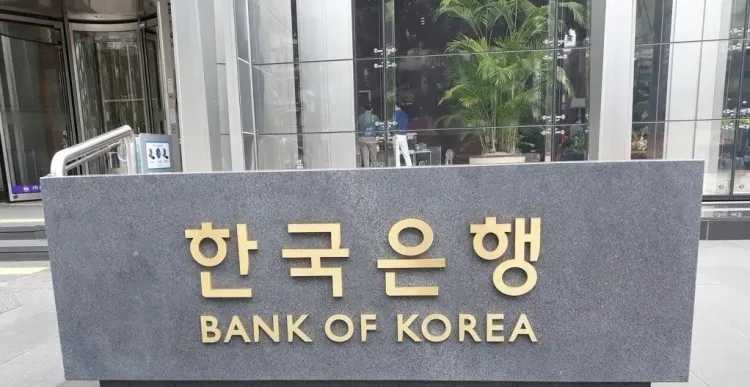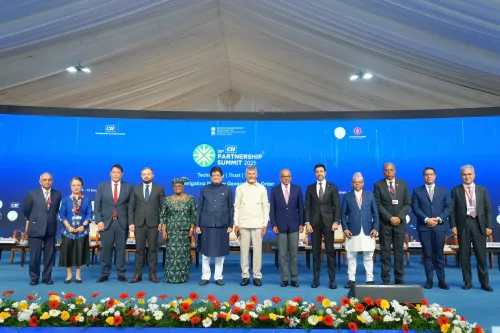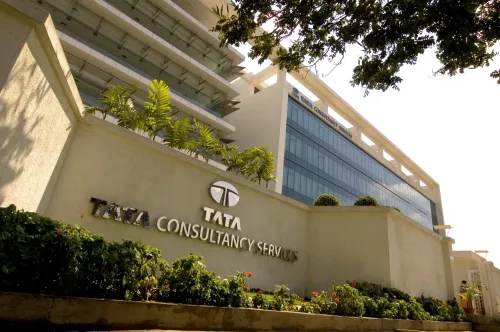How Have Unfavorable Weather Conditions Impacted Private Consumption Growth This Year?

Synopsis
Key Takeaways
- Weather significantly affects consumer behavior.
- A 0.09 percentage point decline in private consumption growth has been reported.
- Temperature extremes reduce daily card spending by up to 7 percent.
- Below-average rainfall has a positive impact, increasing consumption growth.
- Economic volatility is likely due to changing weather patterns and work shifts.
Seoul, Sep 29 (NationPress) This year, extreme heat waves and various weather conditions have led to a decline in the annual private consumption growth rate by approximately 0.09 percentage points, according to the central bank's announcement on Monday.
The Bank of Korea (BOK) reported that a cold wave in the first quarter accounted for a 0.03 percentage point decrease, while a summer heat wave contributed to a 0.15 percentage point drop in private consumption growth.
Interestingly, below-average rainfall this year has resulted in an increase of 0.09 percentage points in consumption growth.
The BOK's findings also revealed that daily card spending plummeted by 7 percent on days of extreme heat, when temperatures soared beyond 35°C, compared to normal weather days, and fell by 3 percent during cold-wave days, when temperatures dropped to or below zero.
Similarly, daily card spending decreased by 6 percent on days with heavy rainfall, where daily precipitation hit or exceeded 20 millimeters, according to the report.
This analysis utilized card spending data alongside weather conditions from the first quarter of 2023 through the second quarter of 2025 across 17 provinces.
The BOK noted, "Unusual weather, alterations in working hours, and shifts in work patterns are likely to maintain volatility in consumption patterns," in their report.
In other news, South Korean stocks traded over 1 percent higher late Monday morning, fueled by renewed optimism for another rate cut by the Federal Reserve.
As of 11:20 a.m., the benchmark Korea Composite Stock Price Index (KOSPI) had risen 40.09 points, or 1.18 percent, reaching 3,426.14.
On Friday, U.S. stocks rebounded as U.S. consumer spending grew in August, aligning with market expectations and igniting hopes for further monetary easing by the Fed.
Major shares in Seoul led early gains, with top-cap Samsung Electronics climbing 1.68 percent, and chip giant SK Hynix soaring 3.05 percent.
Additionally, leading internet firm Naver jumped 7.99 percent, while major commercial bank Shinhan Financial Group advanced 2.17 percent.
K-pop powerhouse Hybe increased by 0.37 percent, and instant noodle maker Samyang Foods rose 0.61 percent.









